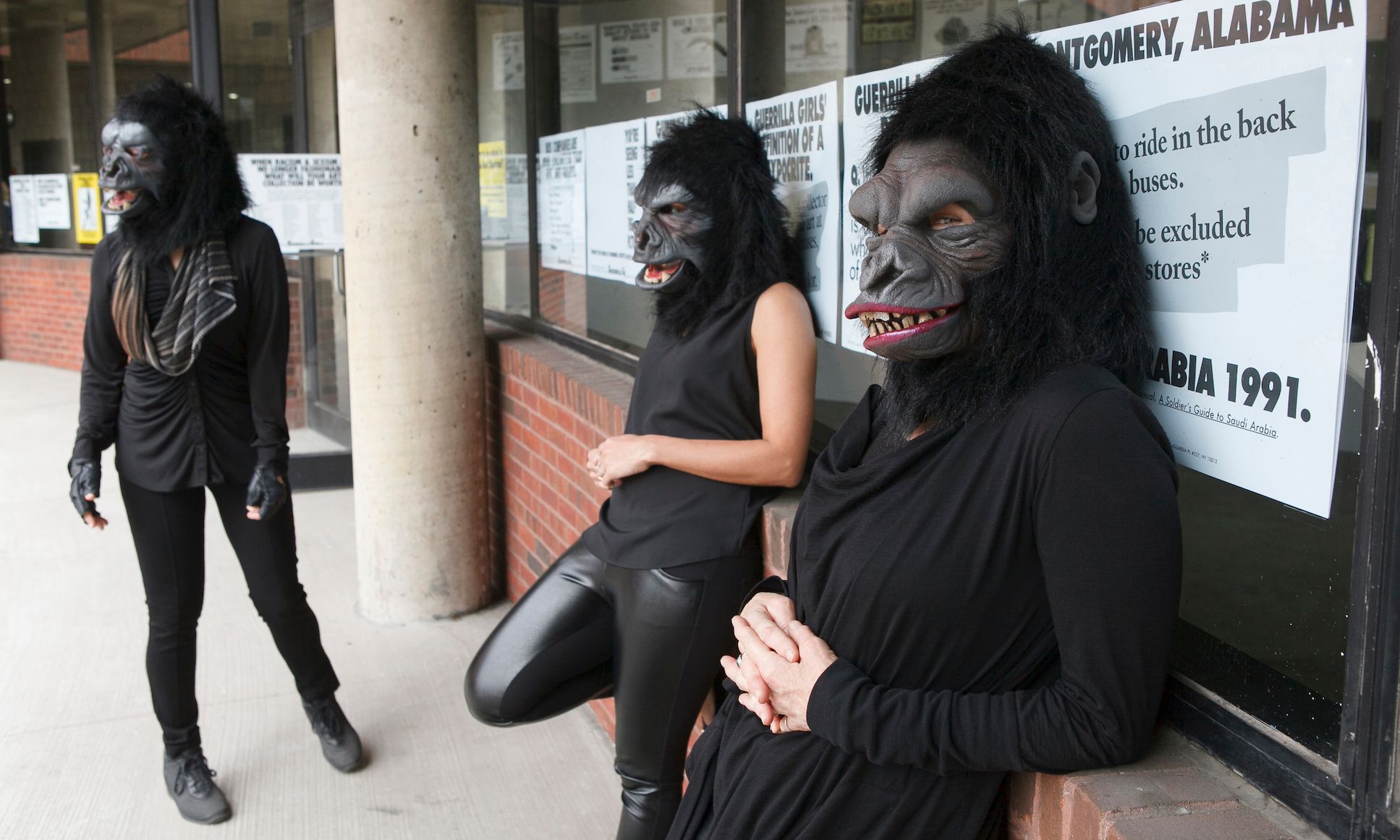The Guerrilla Girls at New York's Abrons Arts Center in 2015 Photo: Andrew Hinderaker
An interactive installation by the Guerrilla Girls—the activist artist collective best known for exposing gender and racial bias in the art world—will join more than a dozen other visual-art projects and over 60 bands this weekend at the second annual Format festival in Bentonville, Arkansas. The Guerrilla Girls’ display—a project of Crystal Bridges Museum of American Art and its contemporary-art satellite, the Momentary—will be an amalgamation of several of the group’s historic and recent works. They will also host workshops on activist art-making.
The Guerrilla Girls’ display will be an iteration of the collective’s landmark work I’m Not a Feminist, but If I Was, This Is What I Would Complain About, which made its debut in 2009 at the National Gallery of Ireland and has travelled throughout the world. The Format project will take the form of a pop-up exhibition showcasing some of the collective’s formative works, like Do Women Have To Be Naked To Get Into the Met. Museum? (1989), and other pieces from the group’s various campaigns.
Because Arkansas now has one of the strictest abortion bans in the US, the project will also include a message to the US Supreme Court on its decision to overturn Roe v Wade last year. (Roe had given people in the US a constitutional right to abortion since 1973; now, abortion rules are decided by individual states.) Meet the Creeps (2022), a deep dive into each Supreme Court justice behind the ruling, will be accompanied by a version of the collective’s Complaints Department, a work first installed at the Tate Modern in 2016 that invites people to publicly air their grievances.
Guerilla Girls, Do Women Have To Be Naked To Get Into the Met. Museum? (1989) Courtesy Guerilla Girls
“We think of works like Complaints Department as a time capsule of complaints made at a certain place at a certain time, and it always yields interesting results,” says “Frida Kahlo” of the Guerrilla Girls (members of the collective are anonymous and use art-historical pseudonyms). “We have never done a project in Arkansas before, so it’s hard to predict what will happen, but we’ve found that, in conservative places, museums often become bastions for freedom. We’re hoping that’s the case for Crystal Bridges—even if it does have a history that’s closely connected to American capitalism.” (The museum was founded in 2011 by Walmart heiress Alice Walton.)
Because Format is a music festival at its core—with musicians like LCD Soundsystem, Jamie xx, Leon Bridges, Alanis Morissette, and Modest Mouse on the docket this weekend—the Guerrilla Girls included a component in their installation that considers how often women appear undressed in music videos. “We had to think about the audience of a music festival, so we’re taking issues we’ve tackled in the art world into other cultural arenas,” Kahlo says.
Ahead of their presentation, the Guerilla Girls also evaluated Crystal Bridges Museum to better understand how it collects art, and to examine discrepancies between the representation of male and female artists. Their findings will inform both their Format project and a series of workshops taking place during the festival.
“We will be introducing our voice, how we work, and take participants through brainstorming sessions,” Kahlo says. “At the end, hopefully each group will have developed some activist campaigns that can be brought into the world as full-fledged social activism.”
Format’s other visual-art installations will include projects by Pierpaolo Ferrari and Maurizio Cattelan’s Toiletpaper magazine, JR’s Inside Out initiative, a Jeremy Deller project and a collaboration between Ragnar Kjartansson and the band the National.

